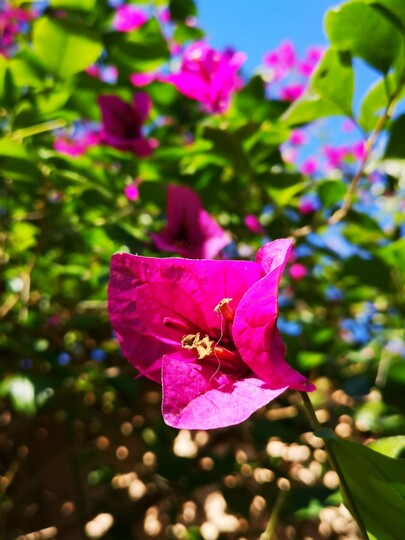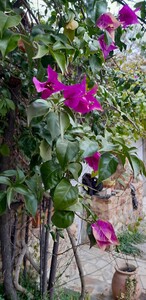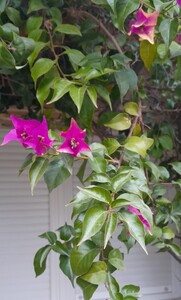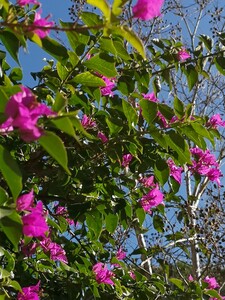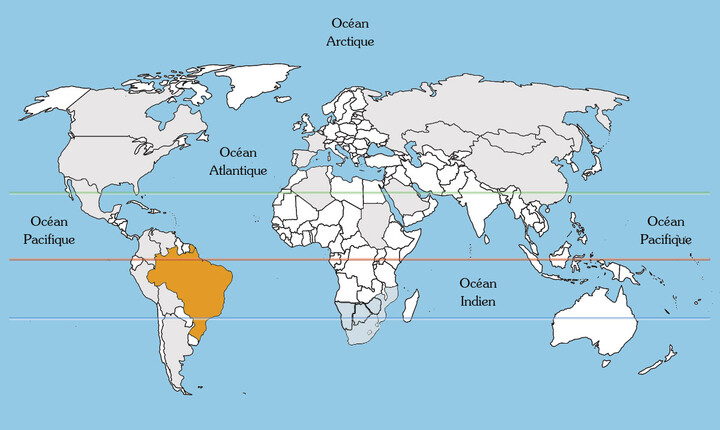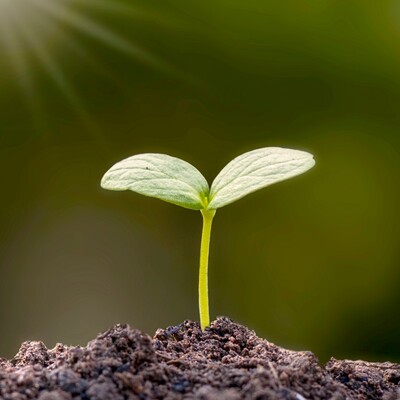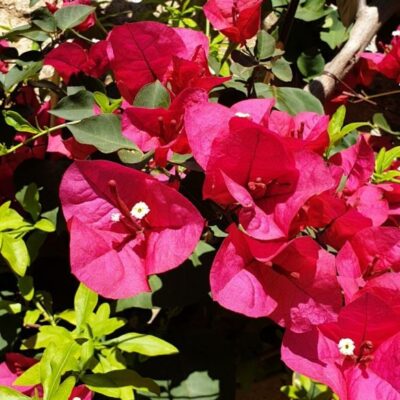Bougainvillea at the campsite
Presentation
A magnificent palette of colours
With its vibrant, brightly-coloured bracts, Bougainvillea glabra – a lesser-known but just as captivating variety of its more famous peer -, adds a dazzling touch to every garden. Including the gardens here at our four-star campsite Les Jardins de La Pascalinette ®!
Originating from South America, this climbing plant is characterized by its deep green foliage and delicate bracts featuring a variety of stunning colours ranging from bright pink to flaming red and deep purple.
Contrary to other bougainvillea varieties, the Bougainvillea glabra does not have any thorns, making it an ideal plant for outdoor living spaces.
With its spectacular allure and resistance to heat, this plant adds a tropical and exotic touch to every garden or outdoor area.
Very widely found in Provence and a remarkable part of our exceptional vegetation, Bougainvillea glabra is a viny shrub. Its colours are not due to its flowers, but the bracts at the end of each branch that encircle the flowers.
Everywhere in our Garden of Eden
Bougainvillea is perfectly adapted to Mediterranean climes but it can be found growing in the wild in most tropical regions too.
It blooms in our region from May to November, so you are sure to be able to enjoy it during your camping holiday in the Var, French Riviera-Côte d’Azur!
Where to find it at the campsite
You’ll find several bougainvillea plants in the campsite grounds, grouped on “Place de La Pascalinette” (nr. 1 on the plan) . They also grow against the wall of games room.
Identity
| Latin name : | Bougainvillea |
|---|---|
| Family : | nyctaginaceae |
| Species : | Persistant |
| Color : | Purple, white, yellow, red, pink or orange (bracts) |
| Subspecies : | Bougainvillea spectabilis |
| Origin : | Brazil |
| Foliage : | Deciduous (in temperate climates) |
| Port : | Climbing plant |
| Height : | Up to 5 m |
| Flowering : | May to November |
| Location : | Place de La Pascalinette, on the reception building and the games room |
Did you know?
Bougainvillea takes its name from the explorer Bougainville, born in 1729, who was the first person to bring it back to Europe from Brazil. It is used in voodoo rituals in the West Indies!

